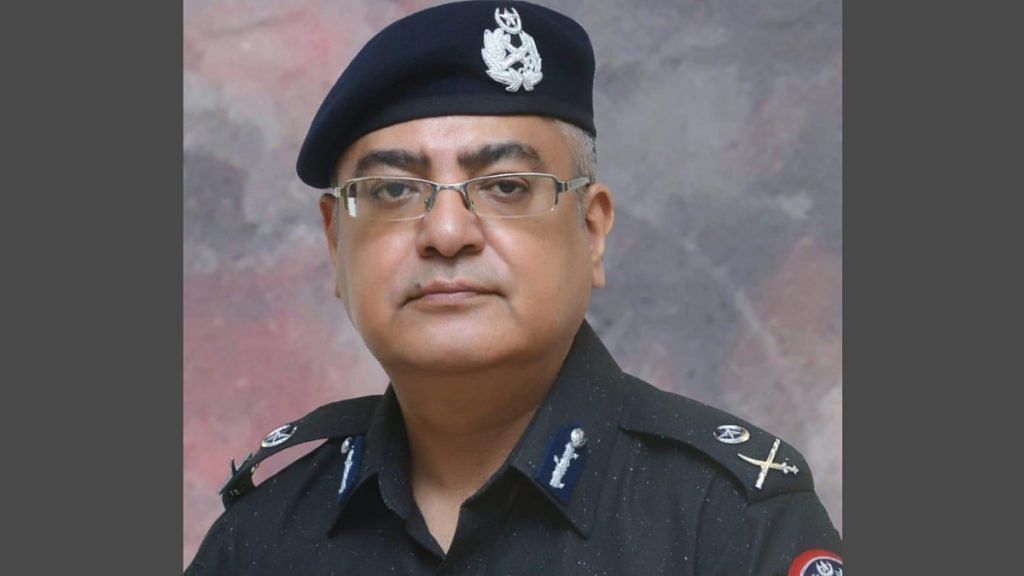New Delhi: The ‘revolt’ by top police officers against the Army in Pakistan’s Sindh province was unprecedented and shook the country’s military, said ThePrint’s Editor-in-Chief Shekhar Gupta in episode 598 of ‘Cut the Clutter‘.
In Sindh, the top brass of the police force including the province’s IG (Inspector General of Police) who is in charge of the entire region, seven DIGs (Deputy Inspector General), six senior superintendents and three SHOs sent identical leave applications asking for a two-month leave.
The reason cited for the leave was that police leadership has been ridiculed and all ranks of Sindh Police have been demoralised, therefore they will not be able to execute their duties under these circumstances.
This was not a protest against an elected government or Prime Minister Imran Khan, but against the “one holy cow” in Pakistan — the Army and its chief General Qamar Javed Bajwa, said Gupta.
Also read: Police-vs-Army crisis in Pakistan, Sindh cops revolt as IG ‘abducted’ to sign arrest warrant
Arrest of Captain Safdar
Gupta explained that this entire debacle started on 18 October, when Pakistan’s 11 opposition parties, together known as the Pakistani Democratic Movement, took out a huge rally near Muhammad Ali Jinnah’s mausoleum in Karachi.
During this protest Pakistani media reported that Pakistan Muslim League (Nawaz) leader retired Captain Mohammad Safdar, also the son-in-law of former prime minister Nawaz Sharif, jumped inside Jinnah’s resting place.
Captain Safdar was then arrested on charges of chanting slogans and instigating people, a move which garnered widespread criticism.
“The only recordings of him I find say ‘vote ko izzat do’, which means honour the vote,” Gupta said.
Following this, Captain Safdar was arrested in the night and released the next day on bail.
“Since Sindh is a Pakistan People’s Party (PPP) stronghold, which is an opposition party, the local police would not arrest an ally of the government, which raised the question — who filed an FIR for the arrest of Captain Safdar?” asked Gupta.
Reports suggest that the arrest happened after several people reached the house of Mushtaq Mahar, the IG of the Sindh province, presumably from the ISI (Inter-Services Intelligence), and forced him to sign an FIR asking for Captain Safdar’s arrest, he said.
It was after this that the Sindh police tendered their leave applications. Another prominent police official who put in her leave application was Suhai Aziz Talpur.
She is one of the very few women officers to have joined the police force in Pakistan. She is also the third Sindhi woman to ever join the police. Aziz is also well-known for her vigour in leading the attack against the terrorists who had attacked the Chinese Embassy in November 2018.
Also read: Pakistan unlikely to exit FATF’s grey list, manages to avert being blacklisted, report says
10-day ultimatum to Army
Army chief General Bajwa had ordered an inquiry into the matter. Following which, as a sign of cooperation, the Sindh Police late last night issued a statement saying that they would defer their own leave and set aside the application for 10 days.
Indeed, immensely grateful to COAS and Sindh Goverment. pic.twitter.com/a4QwsaEJ0a
— Suhai Aziz (@SuhaiAziz) October 20, 2020
Talking about the words used in this statement, Gupta said that the 10-day period sounds like an ultimatum to the Army.
The word ‘abeyance’ implies that they have not given up on their application, just delayed it. This is a significant event since this is a push back from one uniformed force to another, said Gupta.
Also read: Pakistan unlikely to exit FATF’s grey list, manages to avert being blacklisted, report says
Why Army can’t take over Pakistan
Pakistan is a country where the Army is the central pillar of power but works under the pretence of a democracy, said Gupta.
If they want to take over power from any party or leader they will have to do it with Prime Minister Imran Khan as the face. Now, in case there is a provincial government that Imran Khan does not like, the Army orchestrates its downfall and installs a friendlier government.
This is exactly what happened in Balochistan a few years back, which Nawaz Sharif had spoken about in his televised lecture speech that he delivered in a rally.
He had said, “General Bajwa you brought down a government, it is high treason under Article six of Pakistan’s Constitution.”
This was done to install a government friendly to the Pakistan Tehreek-e-Insaf party, which is the ruling party. A similar feat cannot be pulled in Sindh because the PPP is very popular and powerful, said Gupta.
The reason why the police were able to pull off such a stand-off is because the Army has to put up a veneer of federalism as well. Even though the federal government run by Imran Khan is weak and the real power lies with the Army.
Not to forget that the PPP is a significantly powerful party and since law and order is a state subject, it can instigate and encourage police officers to protest against the Army, said Gupta.
Watch the latest episode of CTC here:
